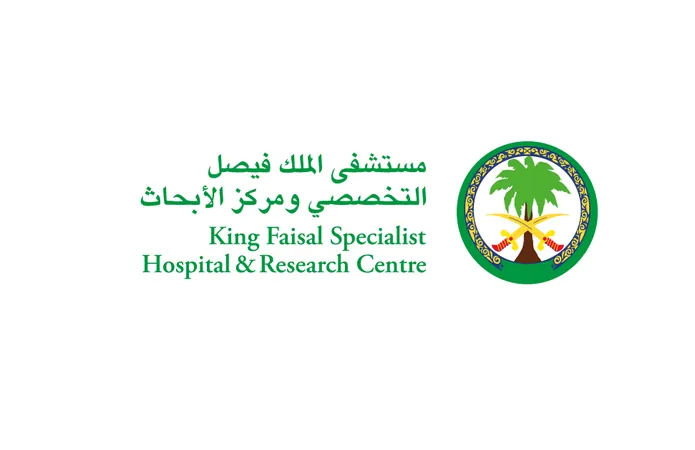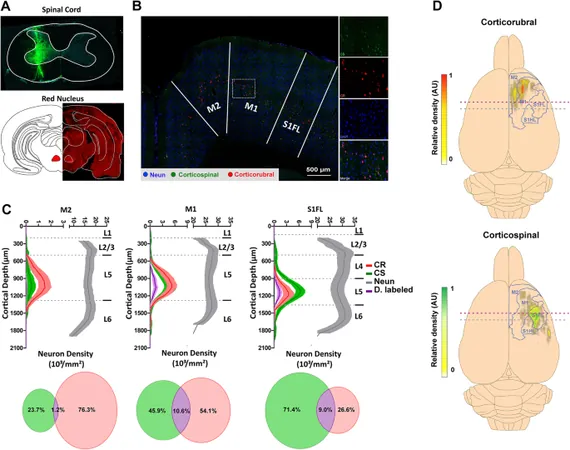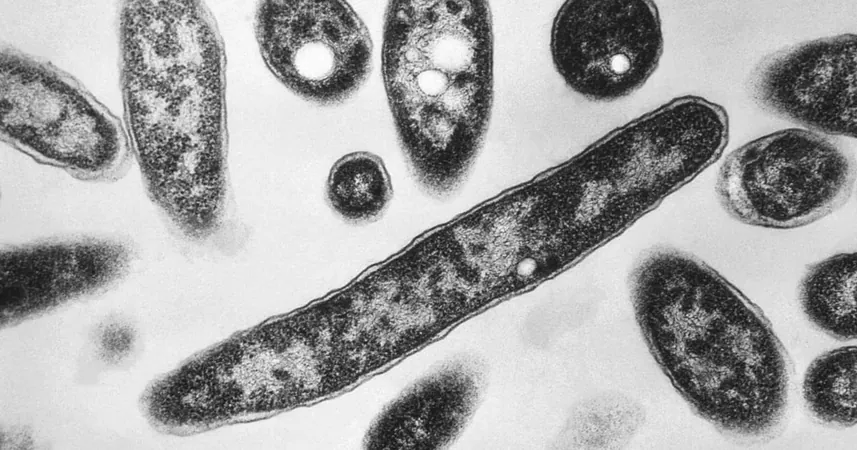
Unlocking the Mysteries of Gut Fungi: How Our Genes Influence Chronic Disease Risk
2025-09-04
Author: Benjamin
Groundbreaking Study Links Genetics and Gut Fungi
A revolutionary genome-wide association study has shed light on the profound ways our unique genetic makeup influences the fungi residing in our intestines, unveiling significant connections to the risk of chronic diseases. Published in *PLOS Biology*, this research marks a pioneering exploration of the human mycobiome.
The Unseen World of Gut Fungi
Historically overshadowed by bacteria and archaea, gut fungi are largely understudied, leaving a gap in our understanding of their roles in human health. "We know much less about what determines the fungi in the gut and their importance to our well-being," stated Dr. Emily Davenport from Penn State University. This study makes the groundbreaking claim that our host genetics can significantly impact the fungi living within us.
A Surprising Perspective on Fungal Communities
Traditionally viewed as transient passengers linked to diet, this research challenges the notion that gut fungi play a minimal role. Instead, it hints at a complex network in which these fungi contribute to conditions like gut inflammation and various diseases.
Delving into Fungal Connections
Davenport and her team analyzed gut mycobiome profiles from 125 participants in the Human Microbiome Project, revealing 148 unique fungal variants across seven chromosomes. These findings identified links between specific genes and certain fungal taxa, further establishing a tripartite relationship between human genetics, gut fungi, and antifungal immunity.
Unlocking Insights on Cardiovascular Disease
One striking discovery showed that the gut yeast Kazachstania correlates with genetic variations associated with cardiovascular disease, particularly through the CDH13 gene linked to T-cadherin. Further analyses confirmed a causal relationship between this fungus and elevated cardiovascular risk, offering a clue to new prevention strategies.
A New Frontier in Personalized Medicine
The study authors emphasize that understanding how our genetics relate to microbial populations and disease risk is crucial for advancing personalized diagnostics and therapies. "This research elevates our understanding of human genetics beyond just bacteria to include the gut fungal biosphere," they noted.
Thrilling Possibilities Ahead
Davenport highlights the excitement surrounding these revelations, suggesting they pave the way for numerous future inquiries. "Will different populations display distinct associations? What genetic interactions could exist between gut fungi and bacteria? We eagerly anticipate the new discoveries on the horizon," she concluded.









 Brasil (PT)
Brasil (PT)
 Canada (EN)
Canada (EN)
 Chile (ES)
Chile (ES)
 Česko (CS)
Česko (CS)
 대한민국 (KO)
대한민국 (KO)
 España (ES)
España (ES)
 France (FR)
France (FR)
 Hong Kong (EN)
Hong Kong (EN)
 Italia (IT)
Italia (IT)
 日本 (JA)
日本 (JA)
 Magyarország (HU)
Magyarország (HU)
 Norge (NO)
Norge (NO)
 Polska (PL)
Polska (PL)
 Schweiz (DE)
Schweiz (DE)
 Singapore (EN)
Singapore (EN)
 Sverige (SV)
Sverige (SV)
 Suomi (FI)
Suomi (FI)
 Türkiye (TR)
Türkiye (TR)
 الإمارات العربية المتحدة (AR)
الإمارات العربية المتحدة (AR)